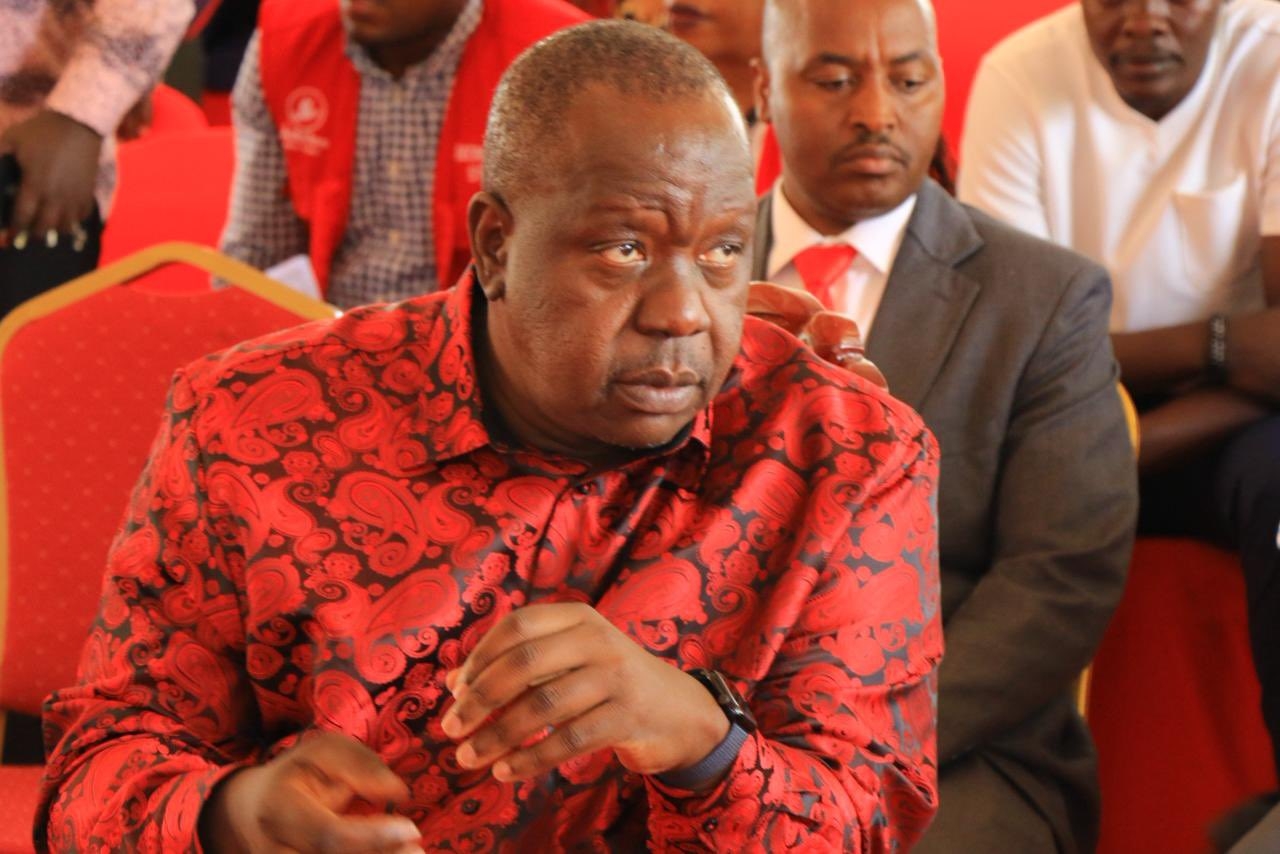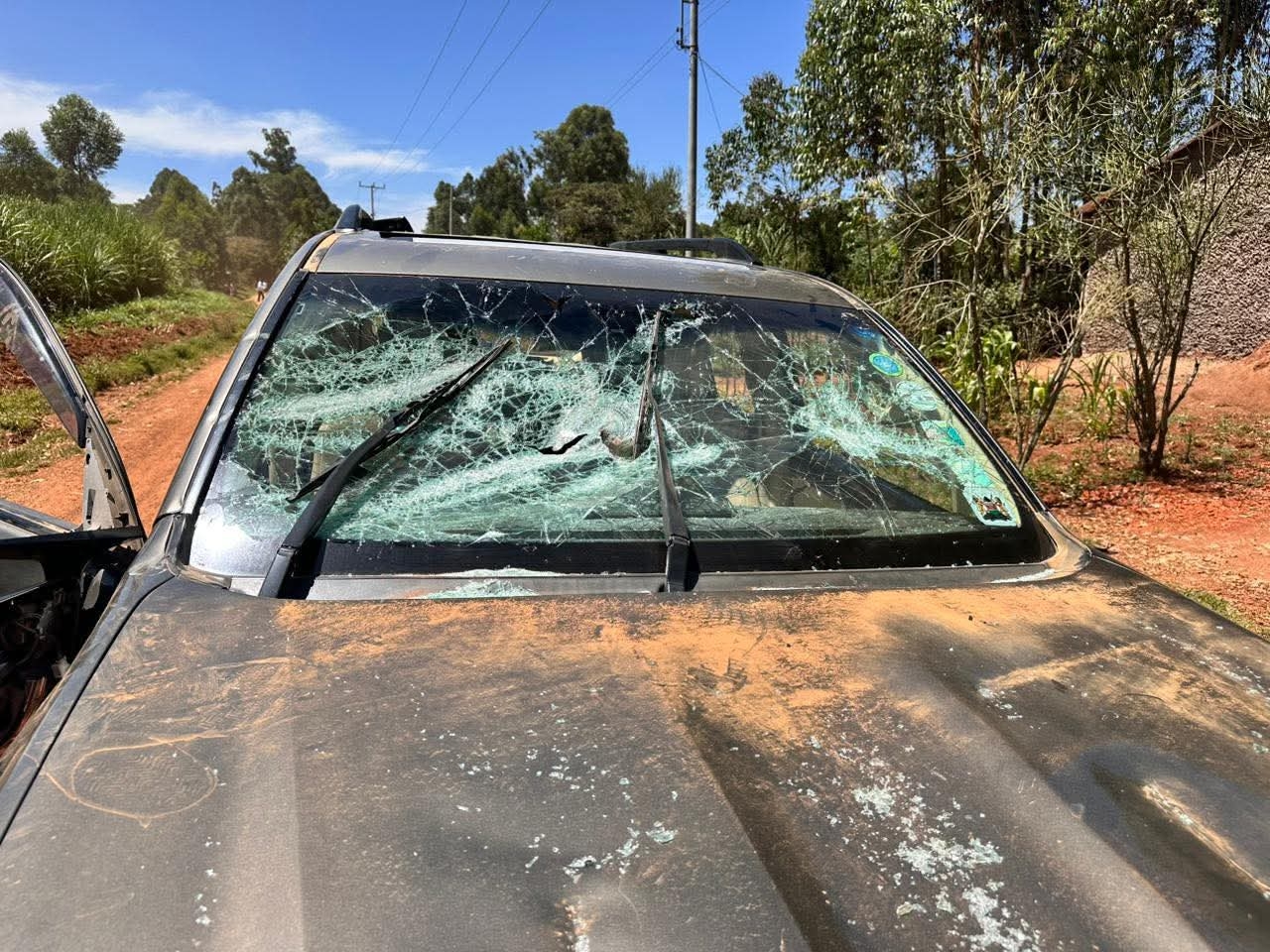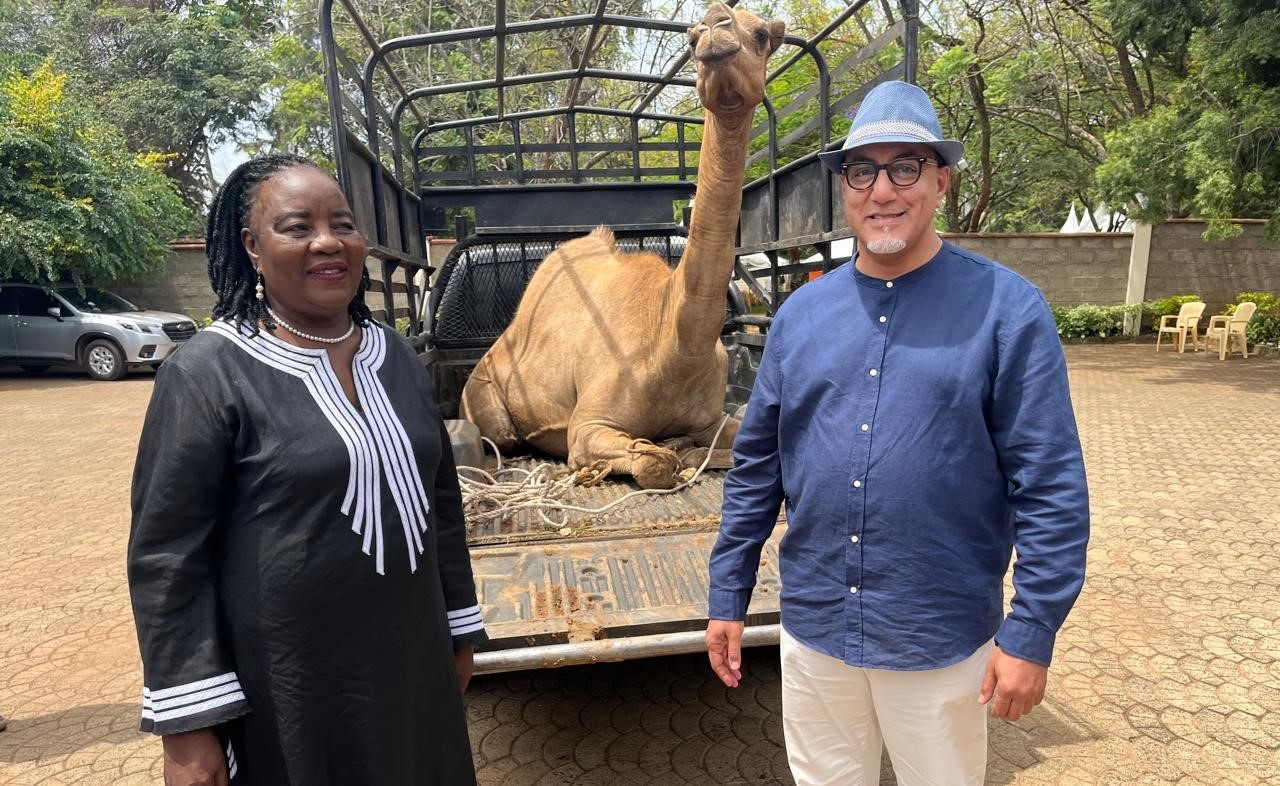By the time Lillian was enrolled in school, she was at that age where children are losing their milk teeth. Her agemates were already in their second or third year of schooling.
Despite her late start in school, Lillian is at home most of the time. During the day, she plays in the open space outside the single room in which she lives with her family. Lillian’s younger sister is clearly also old enough to have started school, but the girls’ parents cannot afford to take both to school.
When asked why she is at home while her friends are in school, Lillian says bluntly, “Nimefukuzwa (I have been sent away from school).”
Not far from Lillian's homestead is a compound where two teenage girls are spending the second day at home. Sandra, 14, is a Standard 8 candidate preparing to sit for the KCPE examination in March 2022. That’s just three months away. Her sister Cate, 13, is in Standard 7 and expecting to sit the KCPE examination in November 2022.
Eliza Majala, the mother of the two girls, says her daughters were sent home from school because of an outstanding fee balance of Sh2,000 each. “I came back home one evening to find the girls here. I don’t know where I will get the money because I am still trying to clear the house rent,” Majala told this writer. She is a single mother.
Sandra and Cate are both enrolled in a public, day primary school. Despite government assurances that education in public schools is free, their school administration demands that parents pay for the meals provided for lunch. Majala is a casual worker, but she often goes without work. Her income is so low that she is behind on the house rent.
LOCKED OUT
A UN survey carried out in 2020 found almost 1.13 million children of primary school age (six to 13 years old) in Kenya are out of school. The situation is likely to be worse today after the pandemic-driven economic downturn in 2020. Many parents and caregivers lost their jobs and businesses.
Apart from poverty, other reasons families give for not taking their children to school include traditional beliefs, drought, teenage pregnancy and schools being too far away in some places. Conflict, too, was a factor, especially in parts of the country prone to cattle-rustling and inter-ethnic fighting.
Meanwhile, a study in the Korogocho and Viwandani areas of Nairobi found that eliminating school fees is not the magic bullet that delivers universal access to education.
“School levies still charged in schools keep children out of school, and chronic poverty within families lures teenage girls into transactional sex," the authors Benta Abuya, Moses Oketch and Peter Musyoka wrote in their paper. In addition, lack of studying space at home, combined with inadequate food, results in poor performance and dropping out of school.
The Ministry of Education has made inconsistent statements regarding fees in public schools. The official policy is that no learner should be sent away from school for lack of money. However, Education CS George Magoha later instructed principals of public schools not to allow into class any child with school fees arrears.
Children who are frequently at home for lack of school fees are very likely to drop out of the education system. Dropping out of school has severe consequences on their future.
Without a primary school certificate, the child cannot proceed to high school. Without a high school education, the young person is locked out of training institutions. They cannot acquire skills that could get them jobs. Boys who dropped out of school are limited to manual jobs and likely to fall into crime. Girls resort to transactional sex and early marriage.
WAGE TRAP
Emily Zighe, 23, left high school while in Form Two because of frequently getting sent home for lack of school fees. “My parents separated, my siblings and I went to live with our mother,” Emily says. In those circumstances, getting school fees was a challenge. “I gave up on school because I was at home most of the time,” she explains.
Emily now works as a waiter at a café. It’s a job she’s specialised in for several years. She's been with her current employer for six months. Her previous stint at a roadside café saw her working from 5:30am to 11pm every day for little pay.
The pay is not much different with her current employer, but she now goes home at 8pm and does not work on Sundays. Emily is not married, but without a high school certificate and vocational training, she is likely to remain trapped in low-paying jobs.
Government policy is to use the national government administrative structures to ensure all eligible children are in school. Local chiefs, community elders and Nyumba Kumi leaders are responsible for ensuring every child who should be in school is not seen roaming around.
Jones Mwakitawa, a father of three, has first-hand experience of this. One day, his 12-year-old son woke up feeling unwell. Jones went out to a local pharmacy to get medication.
Jones narrates the ensuing events. “When I returned home, my son was missing. My wife told me the chief found the boy playing outside. It seems the chief was not satisfied with the explanation that the boy was sick. The chief put the child on the back of his official motorcycle and took him to school.” On hearing this, Jones’ first reaction was anger at the chief’s action but there was not much he could do against a public servant.
There are many children not going to school for a variety of reasons, but the root cause is poverty. Not all parents and guardians can afford school fees. The government will have to increase its funding to schools so the children of poor families can get an education and thus a chance to climb out of poverty.













![[PHOTOS] Ole Ntutu’s son weds in stylish red-themed wedding](/_next/image?url=https%3A%2F%2Fcdn.radioafrica.digital%2Fimage%2F2025%2F11%2Ff0a5154e-67fd-4594-9d5d-6196bf96ed79.jpeg&w=3840&q=100)


